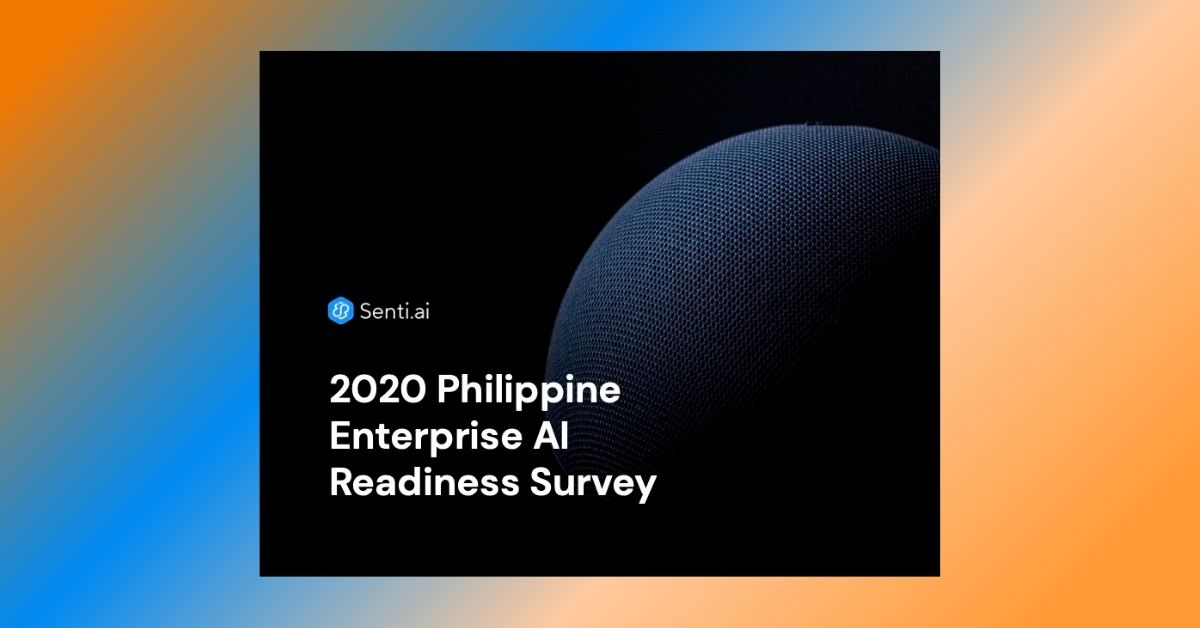Institutions, both public and private, in the Philippines still need a thorough understanding of what Artificial Intelligence (AI) really is, and its value to their operations before making any technology-related decisions.
According to Senti AI’s 2020 Philippine Enterprise AI Readiness Report, there is still a lack of comprehension on more complex aspects of AI which could impact how organizations will be moving forward in their digital transformation journey. This is despite the rapid digital transformation organizations had gone through in the past year.
Senti AI is the leading artificial intelligence solutions and services company in the Philippines. Driven by the desire to empower humans and organizations to work efficiently with AI, the company combines nearly three decades of academic research with deep industry experience to produce cutting-edge AI projects with meaningful impact.
While about 66% of the respondents identified their company as digital-by-nature, the majority of the respondents still said they are not too knowledgeable of AI regardless if they consider their company to be digital in nature or not. Most of the respondents also come from companies involved in finance and insurance.
“Because they don’t fully understand AI and its benefits, respondents also believe that AI does not have an immediate impact on the competitiveness in their respective industries. Due to the lack of in-depth understanding of AI, respondents may not be able to see how AI could have an impact on the competitiveness in their respective industries,” according to Ria Flora, Data Scientist and Research Lead at Senti AI.
Flora added that respondents are still willing to adopt AI if there’s positive feedback from their clients. Likewise, all the respondents agreed that there is still a need to upskill their workforce so they can fully reap the benefits of operating in an AI environment.
Moving Forward
“AI can be applied in different industries. However, it still depends on how prepared they are for AI if they want to reap the maximum benefits of these solutions,” said Ralph Regalado, CEO and Founder of Senti AI.
The lack of deeper AI understanding should not deter organizations from trying out AI initiatives if they think that it can improve their operations or increase their ROI.
The Philippine Enterprise AI Readiness Report also included a framework to help organizations kick off a successful AI initiative. Organizations have to consider three aspects: manpower, business value, and management. Organizations can decide if they want to have an in-house team, outsource, or invest in a hybrid model where their in-house team can get technical expertise from outsourced talents.
To test if an AI solution is worth investing in, Regalado suggested that organizations should look into use cases and determine their success criteria as a guide for comparing the success of an AI initiative before rolling out a small proof of concept project.
“Opting for a full-blown project from the start is risky. It might end up wasting the organization’s time and money especially if it’s their first time dealing with AI. That’s why small proofs of concept should always be done first. These only spans about one to two months, which should be enough for organizations to see the business value of the solution,” Regalado added.
Lastly, to ensure a successful AI initiative rollout, there should be all-out support from all the different stakeholders. Whether the initiators opt for a top-down or bottom-up approach, every department involved in the project should be onboarded properly to gain a better appreciation of the initiative and solution.
The 2020 Philippine Enterprise AI Readiness Report by Senti AI is available for download from their website at https://senti.ai/.


